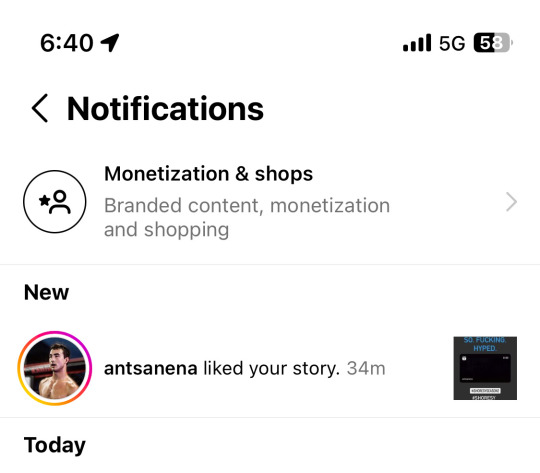#sdos
Text
The disenshittified internet starts with loyal "user agents"

I'm in TARTU, ESTONIA! Overcoming the Enshittocene (TOMORROW, May 8, 6PM, Prima Vista Literary Festival keynote, University of Tartu Library, Struwe 1). AI, copyright and creative workers' labor rights (May 10, 8AM: Science Fiction Research Association talk, Institute of Foreign Languages and Cultures building, Lossi 3, lobby). A talk for hackers on seizing the means of computation (May 10, 3PM, University of Tartu Delta Centre, Narva 18, room 1037).

There's one overwhelmingly common mistake that people make about enshittification: assuming that the contagion is the result of the Great Forces of History, or that it is the inevitable end-point of any kind of for-profit online world.
In other words, they class enshittification as an ideological phenomenon, rather than as a material phenomenon. Corporate leaders have always felt the impulse to enshittify their offerings, shifting value from end users, business customers and their own workers to their shareholders. The decades of largely enshittification-free online services were not the product of corporate leaders with better ideas or purer hearts. Those years were the result of constraints on the mediocre sociopaths who would trade our wellbeing and happiness for their own, constraints that forced them to act better than they do today, even if the were not any better:
https://pluralistic.net/2024/04/24/naming-names/#prabhakar-raghavan
Corporate leaders' moments of good leadership didn't come from morals, they came from fear. Fear that a competitor would take away a disgruntled customer or worker. Fear that a regulator would punish the company so severely that all gains from cheating would be wiped out. Fear that a rival technology – alternative clients, tracker blockers, third-party mods and plugins – would emerge that permanently severed the company's relationship with their customers. Fears that key workers in their impossible-to-replace workforce would leave for a job somewhere else rather than participate in the enshittification of the services they worked so hard to build:
https://pluralistic.net/2024/04/22/kargo-kult-kaptialism/#dont-buy-it
When those constraints melted away – thanks to decades of official tolerance for monopolies, which led to regulatory capture and victory over the tech workforce – the same mediocre sociopaths found themselves able to pursue their most enshittificatory impulses without fear.
The effects of this are all around us. In This Is Your Phone On Feminism, the great Maria Farrell describes how audiences at her lectures profess both love for their smartphones and mistrust for them. Farrell says, "We love our phones, but we do not trust them. And love without trust is the definition of an abusive relationship":
https://conversationalist.org/2019/09/13/feminism-explains-our-toxic-relationships-with-our-smartphones/
I (re)discovered this Farrell quote in a paper by Robin Berjon, who recently co-authored a magnificent paper with Farrell entitled "We Need to Rewild the Internet":
https://www.noemamag.com/we-need-to-rewild-the-internet/
The new Berjon paper is narrower in scope, but still packed with material examples of the way the internet goes wrong and how it can be put right. It's called "The Fiduciary Duties of User Agents":
https://papers.ssrn.com/sol3/papers.cfm?abstract_id=3827421
In "Fiduciary Duties," Berjon focuses on the technical term "user agent," which is how web browsers are described in formal standards documents. This notion of a "user agent" is a holdover from a more civilized age, when technologists tried to figure out how to build a new digital space where technology served users.
A web browser that's a "user agent" is a comforting thought. An agent's job is to serve you and your interests. When you tell it to fetch a web-page, your agent should figure out how to get that page, make sense of the code that's embedded in, and render the page in a way that represents its best guess of how you'd like the page seen.
For example, the user agent might judge that you'd like it to block ads. More than half of all web users have installed ad-blockers, constituting the largest consumer boycott in human history:
https://doc.searls.com/2023/11/11/how-is-the-worlds-biggest-boycott-doing/
Your user agent might judge that the colors on the page are outside your visual range. Maybe you're colorblind, in which case, the user agent could shift the gamut of the colors away from the colors chosen by the page's creator and into a set that suits you better:
https://dankaminsky.com/dankam/
Or maybe you (like me) have a low-vision disability that makes low-contrast type difficult to impossible to read, and maybe the page's creator is a thoughtless dolt who's chosen light grey-on-white type, or maybe they've fallen prey to the absurd urban legend that not-quite-black type is somehow more legible than actual black type:
https://uxplanet.org/basicdesign-never-use-pure-black-in-typography-36138a3327a6
The user agent is loyal to you. Even when you want something the page's creator didn't consider – even when you want something the page's creator violently objects to – your user agent acts on your behalf and delivers your desires, as best as it can.
Now – as Berjon points out – you might not know exactly what you want. Like, you know that you want the privacy guarantees of TLS (the difference between "http" and "https") but not really understand the internal cryptographic mysteries involved. Your user agent might detect evidence of shenanigans indicating that your session isn't secure, and choose not to show you the web-page you requested.
This is only superficially paradoxical. Yes, you asked your browser for a web-page. Yes, the browser defied your request and declined to show you that page. But you also asked your browser to protect you from security defects, and your browser made a judgment call and decided that security trumped delivery of the page. No paradox needed.
But of course, the person who designed your user agent/browser can't anticipate all the ways this contradiction might arise. Like, maybe you're trying to access your own website, and you know that the security problem the browser has detected is the result of your own forgetful failure to renew your site's cryptographic certificate. At that point, you can tell your browser, "Thanks for having my back, pal, but actually this time it's fine. Stand down and show me that webpage."
That's your user agent serving you, too.
User agents can be well-designed or they can be poorly made. The fact that a user agent is designed to act in accord with your desires doesn't mean that it always will. A software agent, like a human agent, is not infallible.
However – and this is the key – if a user agent thwarts your desire due to a fault, that is fundamentally different from a user agent that thwarts your desires because it is designed to serve the interests of someone else, even when that is detrimental to your own interests.
A "faithless" user agent is utterly different from a "clumsy" user agent, and faithless user agents have become the norm. Indeed, as crude early internet clients progressed in sophistication, they grew increasingly treacherous. Most non-browser tools are designed for treachery.
A smart speaker or voice assistant routes all your requests through its manufacturer's servers and uses this to build a nonconsensual surveillance dossier on you. Smart speakers and voice assistants even secretly record your speech and route it to the manufacturer's subcontractors, whether or not you're explicitly interacting with them:
https://www.sciencealert.com/creepy-new-amazon-patent-would-mean-alexa-records-everything-you-say-from-now-on
By design, apps and in-app browsers seek to thwart your preferences regarding surveillance and tracking. An app will even try to figure out if you're using a VPN to obscure your location from its maker, and snitch you out with its guess about your true location.
Mobile phones assign persistent tracking IDs to their owners and transmit them without permission (to its credit, Apple recently switch to an opt-in system for transmitting these IDs) (but to its detriment, Apple offers no opt-out from its own tracking, and actively lies about the very existence of this tracking):
https://pluralistic.net/2022/11/14/luxury-surveillance/#liar-liar
An Android device running Chrome and sitting inert, with no user interaction, transmits location data to Google every five minutes. This is the "resting heartbeat" of surveillance for an Android device. Ask that device to do any work for you and its pulse quickens, until it is emitting a nearly continuous stream of information about your activities to Google:
https://digitalcontentnext.org/blog/2018/08/21/google-data-collection-research/
These faithless user agents both reflect and enable enshittification. The locked-down nature of the hardware and operating systems for Android and Ios devices means that manufacturers – and their business partners – have an arsenal of legal weapons they can use to block anyone who gives you a tool to modify the device's behavior. These weapons are generically referred to as "IP rights" which are, broadly speaking, the right to control the conduct of a company's critics, customers and competitors:
https://locusmag.com/2020/09/cory-doctorow-ip/
A canny tech company can design their products so that any modification that puts the user's interests above its shareholders is illegal, a violation of its copyright, patent, trademark, trade secrets, contracts, terms of service, nondisclosure, noncompete, most favored nation, or anticircumvention rights. Wrap your product in the right mix of IP, and its faithless betrayals acquire the force of law.
This is – in Jay Freeman's memorable phrase – "felony contempt of business model." While more than half of all web users have installed an ad-blocker, thus overriding the manufacturer's defaults to make their browser a more loyal agent, no app users have modified their apps with ad-blockers.
The first step of making such a blocker, reverse-engineering the app, creates criminal liability under Section 1201 of the Digital Millennium Copyright Act, with a maximum penalty of five years in prison and a $500,000 fine. An app is just a web-page skinned in sufficient IP to make it a felony to add an ad-blocker to it (no wonder every company wants to coerce you into using its app, rather than its website).
If you know that increasing the invasiveness of the ads on your web-page could trigger mass installations of ad-blockers by your users, it becomes irrational and self-defeating to ramp up your ads' invasiveness. The possibility of interoperability acts as a constraint on tech bosses' impulse to enshittify their products.
The shift to platforms dominated by treacherous user agents – apps, mobile ecosystems, walled gardens – weakens or removes that constraint. As your ability to discipline your agent so that it serves you wanes, the temptation to turn your user agent against you grows, and enshittification follows.
This has been tacitly understood by technologists since the web's earliest days and has been reaffirmed even as enshittification increased. Berjon quotes extensively from "The Internet Is For End-Users," AKA Internet Architecture Board RFC 8890:
Defining the user agent role in standards also creates a virtuous cycle; it allows multiple implementations, allowing end users to switch between them with relatively low costs (…). This creates an incentive for implementers to consider the users' needs carefully, which are often reflected into the defining standards. The resulting ecosystem has many remaining problems, but a distinguished user agent role provides an opportunity to improve it.
And the W3C's Technical Architecture Group echoes these sentiments in "Web Platform Design Principles," which articulates a "Priority of Constituencies" that is supposed to be central to the W3C's mission:
User needs come before the needs of web page authors, which come before the needs of user agent implementors, which come before the needs of specification writers, which come before theoretical purity.
https://w3ctag.github.io/design-principles/
But the W3C's commitment to faithful agents is contingent on its own members' commitment to these principles. In 2017, the W3C finalized "EME," a standard for blocking mods that interact with streaming videos. Nominally aimed at preventing copyright infringement, EME also prevents users from choosing to add accessibility add-ons that beyond the ones the streaming service permits. These services may support closed captioning and additional narration of visual elements, but they block tools that adapt video for color-blind users or prevent strobe effects that trigger seizures in users with photosensitive epilepsy.
The fight over EME was the most contentious struggle in the W3C's history, in which the organization's leadership had to decide whether to honor the "priority of constituencies" and make a standard that allowed users to override manufacturers, or whether to facilitate the creation of faithless agents specifically designed to thwart users' desires on behalf of manufacturers:
https://www.eff.org/deeplinks/2017/09/open-letter-w3c-director-ceo-team-and-membership
This fight was settled in favor of a handful of extremely large and powerful companies, over the objections of a broad collection of smaller firms, nonprofits representing users, academics and other parties agitating for a web built on faithful agents. This coincided with the W3C's operating budget becoming entirely dependent on the very large sums its largest corporate members paid.
W3C membership is on a sliding scale, based on a member's size. Nominally, the W3C is a one-member, one-vote organization, but when a highly concentrated collection of very high-value members flex their muscles, W3C leadership seemingly perceived an existential risk to the organization, and opted to sacrifice the faithfulness of user agents in service to the anti-user priorities of its largest members.
For W3C's largest corporate members, the fight was absolutely worth it. The W3C's EME standard transformed the web, making it impossible to ship a fully featured web-browser without securing permission – and a paid license – from one of the cartel of companies that dominate the internet. In effect, Big Tech used the W3C to secure the right to decide who would compete with them in future, and how:
https://blog.samuelmaddock.com/posts/the-end-of-indie-web-browsers/
Enshittification arises when the everyday mediocre sociopaths who run tech companies are freed from the constraints that act against them. When the web – and its browsers – were a big, contented, diverse, competitive space, it was harder for tech companies to collude to capture standards bodies like the W3C to secure even more dominance. As the web turned into Tom Eastman's "five giant websites filled with screenshots of text from the other four," that kind of collusion became much easier:
https://pluralistic.net/2023/04/18/cursed-are-the-sausagemakers/#how-the-parties-get-to-yes
In arguing for faithful agents, Berjon associates himself with the group of scholars, regulators and activists who call for user agents to serve as "information fiduciaries." Mostly, information fiduciaries come up in the context of user privacy, with the idea that entities that hold a user's data would have the obligation to put the user's interests ahead of their own. Think of a lawyer's fiduciary duty in respect of their clients, to give advice that reflects the client's best interests, even when that conflicts with the lawyer's own self-interest. For example, a lawyer who believes that settling a case is the best course of action for a client is required to tell them so, even if keeping the case going would generate more billings for the lawyer and their firm.
For a user agent to be faithful, it must be your fiduciary. It must put your interests ahead of the interests of the entity that made it or operates it. Browsers, email clients, and other internet software that served as a fiduciary would do things like automatically blocking tracking (which most email clients don't do, especially webmail clients made by companies like Google, who also sell advertising and tracking).
Berjon contemplates a legally mandated fiduciary duty, citing Lindsey Barrett's "Confiding in Con Men":
https://papers.ssrn.com/sol3/papers.cfm?abstract_id=3354129
He describes a fiduciary duty as a remedy for the enforcement failures of EU's GDPR, a solidly written, and dismally enforced, privacy law. A legally backstopped duty for agents to be fiduciaries would also help us distinguish good and bad forms of "innovation" – innovation in ways of thwarting a user's will are always bad.
Now, the tech giants insist that they are already fiduciaries, and that when they thwart a user's request, that's more like blocking access to a page where the encryption has been compromised than like HAL9000's "I can't let you do that, Dave." For example, when Louis Barclay created "Unfollow Everything," he (and his enthusiastic users) found that automating the process of unfollowing every account on Facebook made their use of the service significantly better:
https://slate.com/technology/2021/10/facebook-unfollow-everything-cease-desist.html
When Facebook shut the service down with blood-curdling legal threats, they insisted that they were simply protecting users from themselves. Sure, this browser automation tool – which just automatically clicked links on Facebook's own settings pages – seemed to do what the users wanted. But what if the user interface changed? What if so many users added this feature to Facebook without Facebook's permission that they overwhelmed Facebook's (presumably tiny and fragile) servers and crashed the system?
These arguments have lately resurfaced with Ethan Zuckerman and Knight First Amendment Institute's lawsuit to clarify that "Unfollow Everything 2.0" is legal and doesn't violate any of those "felony contempt of business model" laws:
https://pluralistic.net/2024/05/02/kaiju-v-kaiju/
Sure, Zuckerman seems like a good guy, but what if he makes a mistake and his automation tool does something you don't want? You, the Facebook user, are also a nice guy, but let's face it, you're also a naive dolt and you can't be trusted to make decisions for yourself. Those decisions can only be made by Facebook, whom we can rely upon to exercise its authority wisely.
Other versions of this argument surfaced in the debate over the EU's decision to mandate interoperability for end-to-end encrypted (E2EE) messaging through the Digital Markets Act (DMA), which would let you switch from, say, Whatsapp to Signal and still send messages to your Whatsapp contacts.
There are some good arguments that this could go horribly awry. If it is rushed, or internally sabotaged by the EU's state security services who loathe the privacy that comes from encrypted messaging, it could expose billions of people to serious risks.
But that's not the only argument that DMA opponents made: they also argued that even if interoperable messaging worked perfectly and had no security breaches, it would still be bad for users, because this would make it impossible for tech giants like Meta, Google and Apple to spy on message traffic (if not its content) and identify likely coordinated harassment campaigns. This is literally the identical argument the NSA made in support of its "metadata" mass-surveillance program: "Reading your messages might violate your privacy, but watching your messages doesn't."
This is obvious nonsense, so its proponents need an equally obviously intellectually dishonest way to defend it. When called on the absurdity of "protecting" users by spying on them against their will, they simply shake their heads and say, "You just can't understand the burdens of running a service with hundreds of millions or billions of users, and if I even tried to explain these issues to you, I would divulge secrets that I'm legally and ethically bound to keep. And even if I could tell you, you wouldn't understand, because anyone who doesn't work for a Big Tech company is a naive dolt who can't be trusted to understand how the world works (much like our users)."
Not coincidentally, this is also literally the same argument the NSA makes in support of mass surveillance, and there's a very useful name for it: scalesplaining.
Now, it's totally true that every one of us is capable of lapses in judgment that put us, and the people connected to us, at risk (my own parents gave their genome to the pseudoscience genetic surveillance company 23andme, which means they have my genome, too). A true information fiduciary shouldn't automatically deliver everything the user asks for. When the agent perceives that the user is about to put themselves in harm's way, it should throw up a roadblock and explain the risks to the user.
But the system should also let the user override it.
This is a contentious statement in information security circles. Users can be "socially engineered" (tricked), and even the most sophisticated users are vulnerable to this:
https://pluralistic.net/2024/02/05/cyber-dunning-kruger/#swiss-cheese-security
The only way to be certain a user won't be tricked into taking a course of action is to forbid that course of action under any circumstances. If there is any means by which a user can flip the "are you very sure?" circuit-breaker back on, then the user can be tricked into using that means.
This is absolutely true. As you read these words, all over the world, vulnerable people are being tricked into speaking the very specific set of directives that cause a suspicious bank-teller to authorize a transfer or cash withdrawal that will result in their life's savings being stolen by a scammer:
https://www.thecut.com/article/amazon-scam-call-ftc-arrest-warrants.html
We keep making it harder for bank customers to make large transfers, but so long as it is possible to make such a transfer, the scammers have the means, motive and opportunity to discover how the process works, and they will go on to trick their victims into invoking that process.
Beyond a certain point, making it harder for bank depositors to harm themselves creates a world in which people who aren't being scammed find it nearly impossible to draw out a lot of cash for an emergency and where scam artists know exactly how to manage the trick. After all, non-scammers only rarely experience emergencies and thus have no opportunity to become practiced in navigating all the anti-fraud checks, while the fraudster gets to run through them several times per day, until they know them even better than the bank staff do.
This is broadly true of any system intended to control users at scale – beyond a certain point, additional security measures are trivially surmounted hurdles for dedicated bad actors and as nearly insurmountable hurdles for their victims:
https://pluralistic.net/2022/08/07/como-is-infosec/
At this point, we've had a couple of decades' worth of experience with technological "walled gardens" in which corporate executives get to override their users' decisions about how the system should work, even when that means reaching into the users' own computer and compelling it to thwart the user's desire. The record is inarguable: while companies often use those walls to lock bad guys out of the system, they also use the walls to lock their users in, so that they'll be easy pickings for the tech company that owns the system:
https://pluralistic.net/2023/02/05/battery-vampire/#drained
This is neatly predicted by enshittification's theory of constraints: when a company can override your choices, it will be irresistibly tempted to do so for its own benefit, and to your detriment.
What's more, the mere possibility that you can override the way the system works acts as a disciplining force on corporate executives, forcing them to reckon with your priorities even when these are counter to their shareholders' interests. If Facebook is genuinely worried that an "Unfollow Everything" script will break its servers, it can solve that by giving users an unfollow everything button of its own design. But so long as Facebook can sue anyone who makes an "Unfollow Everything" tool, they have no reason to give their users such a button, because it would give them more control over their Facebook experience, including the controls needed to use Facebook less.
It's been more than 20 years since Seth Schoen and I got a demo of Microsoft's first "trusted computing" system, with its "remote attestations," which would let remote servers demand and receive accurate information about what kind of computer you were using and what software was running on it.
This could be beneficial to the user – you could send a "remote attestation" to a third party you trusted and ask, "Hey, do you think my computer is infected with malicious software?" Since the trusted computing system produced its report on your computer using a sealed, separate processor that the user couldn't directly interact with, any malicious code you were infected with would not be able to forge this attestation.
But this remote attestation feature could also be used to allow Microsoft to block you from opening a Word document with Libreoffice, Apple Pages, or Google Docs, or it could be used to allow a website to refuse to send you pages if you were running an ad-blocker. In other words, it could transform your information fiduciary into a faithless agent.
Seth proposed an answer to this: "owner override," a hardware switch that would allow you to force your computer to lie on your behalf, when that was beneficial to you, for example, by insisting that you were using Microsoft Word to open a document when you were really using Apple Pages:
https://web.archive.org/web/20021004125515/http://vitanuova.loyalty.org/2002-07-05.html
Seth wasn't naive. He knew that such a system could be exploited by scammers and used to harm users. But Seth calculated – correctly! – that the risks of having a key to let yourself out of the walled garden were less than being stuck in a walled garden where some corporate executive got to decide whether and when you could leave.
Tech executives never stopped questing after a way to turn your user agent from a fiduciary into a traitor. Last year, Google toyed with the idea of adding remote attestation to web browsers, which would let services refuse to interact with you if they thought you were using an ad blocker:
https://pluralistic.net/2023/08/02/self-incrimination/#wei-bai-bai
The reasoning for this was incredible: by adding remote attestation to browsers, they'd be creating "feature parity" with apps – that is, they'd be making it as practical for your browser to betray you as it is for your apps to do so (note that this is the same justification that the W3C gave for creating EME, the treacherous user agent in your browser – "streaming services won't allow you to access movies with your browser unless your browser is as enshittifiable and authoritarian as an app").
Technologists who work for giant tech companies can come up with endless scalesplaining explanations for why their bosses, and not you, should decide how your computer works. They're wrong. Your computer should do what you tell it to do:
https://www.eff.org/deeplinks/2023/08/your-computer-should-say-what-you-tell-it-say-1
These people can kid themselves that they're only taking away your power and handing it to their boss because they have your best interests at heart. As Upton Sinclair told us, it's impossible to get someone to understand something when their paycheck depends on them not understanding it.
The only way to get a tech boss to consistently treat you well is to ensure that if they stop, you can quit. Anything less is a one-way ticket to enshittification.

If you'd like an essay-formatted version of this post to read or share, here's a link to it on pluralistic.net, my surveillance-free, ad-free, tracker-free blog:
https://pluralistic.net/2024/05/07/treacherous-computing/#rewilding-the-internet

Image:
Cryteria (modified) https://commons.wikimedia.org/wiki/File:HAL9000.svg
CC BY 3.0
https://creativecommons.org/licenses/by/3.0/deed.en
#pluralistic#maria farrell#scalesplaining#user agents#eme#w3c#sdos#scholarship#information fiduciary#the internet is for end users#ietf#delegation#bootlickers#unfollow everything#remote attestation#browsers#treacherous computing#enshittification#snitch chips#Robin Berjon#rewilding the internet
345 notes
·
View notes
Photo

very overdue post but nak upload jugak #sdos shot! ahahahha. let’s pray for a smooth 2023 and cheering on abang taking psle this yr.. we can do this! btw, one more not in pic ponteng eh. 🤦🏻♀️😏 https://www.instagram.com/p/Cm_wlqehhwKAbMD9hU04uMJt4RZD8QWvejBFnw0/?igshid=NGJjMDIxMWI=
0 notes
Text

THIS.....CREATURE????????
#ensemble stars#enstars#himeru#I ABSOLUTELY LOVE THIS THING WHATEVER IT IS#new meru card soooo pretty i liiiike it sm ahhhh!!!!!!!#i screamed when saw him oaooooaoaaaaoooooooaoo#LIKE.....HE'S SO GENTLE AND OPEN THERE!!!! SMILING ON BLOOMED AND SO SILLY ON UNBLOOMED!!!!!!!!#BITING HIM BBBRRBRRGGGRGRRGGGRAAA#JDSHDKLVJCLS;DZKCKSD;VJ;SDO
152 notes
·
View notes
Text



Partial Solar Eclipse Seen From Space
81 notes
·
View notes
Text
via redbullracing
313 notes
·
View notes
Text


The business partners are dancing!
#rel'sart#alastor#charlie magne#hazbin hotel#hh#vivziepop#got my own issues with the show and creator but I've been attached to the two of them since the pilot#can be interpreted as charlastor if you like :3#I never really saw them as father and daughter esp in the pilot? So episode five was a slap to the face. I did not see it coming at all SDO#charlastor#like#I can understand how others would ship them given how intriguing their dynamic is#both of their ideals and beliefs are in conflict and against each other#but at the same time they seem to share a lot of similar interests??? and also the vibes are impeccable#like the two of them can really challenge the other I would say...#but yeah my blog is a safe space for those who like Charlastor!#honestly I don't even mind a platonic dynamic for them#their interactions are always so intriguing to me#Like Alastor being intrigued by Charlie#seeing her as the most interesting thing after years of BOREDOM#He wants in on that#Front row seats if you will#I think every single action he takes towards her is manipulative but he grows to care for her in his own way#Charlie sees the good in everyone and is hellbent on proving Alastor wrong#One might say#she believes in redeeming even him#which Alastor just laughs at#I've been a Charlastor shipper since the pilot and I have curated my own specific view on them ever since KSDHD#Like...in the Charlastor ship right...I can't actually imagine Alastor loving Charlie in a romantic way??#It's more like he's fascinated by her and wants to shake her in a bottle BAHAHAH
62 notes
·
View notes
Text


Testing out solar photography before the 2024 total eclipse next month! Thought it would be fun to compare my photo to today's SDO satellite image
36 notes
·
View notes
Text




Riddle goes to Idia's room for Manga Recomendations (Cater advice). Idia shows off his colections featuring the more questionable manga he owns. Riddle gets, understandably, curious. Most Akward missunderstanding of their life insues.
#art#comic#twisted wonderland#idia shroud#riddle rosehearts#had a thought and i was like 'I should draw this lol' here it is#and actually finished a sketch comic for once?! crazy actually#Anyways i have been thinking about them way to much the parralelism is CRAZY#chronically online x chronically offline do you guys get it#a part of my brain is like 'girl this is so cringe people will kill you for this' but like. i dont care enough to not do that. ssry#to my friends that will see this um uuuuuuu#whatever see you in like 3 months next time i do a cringe ass comic i still wanna post bcs its not sdo bad actually
44 notes
·
View notes
Text
I JUST PASSED OUT AND MY LIMBS ARE WEAK HEL[PL, MEM
15 notes
·
View notes
Text
Huge tornados of plasma on the Sun
8 notes
·
View notes
Note
😂I’m just imagining in dead apple dazai fyodor and shibusawa are sitting on that table and just in the middle of their talk sk reader just barges in and is like ‚shibu I just got to tell you about the new ability I got!‘ and shibusawa is just suddenly ignoring the other two and is like ‚omg bestie I get the cookies and the tea you know where the nailpolish and the hairties are let’s meat up in the lounge I have to hear that!‘ and fyodor and dazai are just like ‚what in the world did just happen?‘
fyodor and dazai get kicked out because the real star is back!!
61 notes
·
View notes
Text
Pinkdrunk Linkdump

Today (November 18) at 1PM, I'll be in Concord, NH at Gibson's Books, presenting my new novel The Lost Cause, a preapocalyptic tale of hope in the climate emergency.
On Monday (November 20), I'm at the Simsbury, CT Public Library at 7PM

Happy Saturday! As is so often the case, I have finished the week with more stray links that I can fit into my blog, so it's time for a linkdump post, in which an assorted assortment is assembled. This is my tenth such linkdump – here are the previous installments:
https://pluralistic.net/2023/11/05/variegated/#nein
While nostalgia is a toxic impulse (h/t John Hodgman), there's no denying that there once existed an old, good web, and that it has given way to the enshitternet. I don't want to bring the old, good web back, but I would welcome a new, good web, and by studying the factors that contributed to the old, good web's rise and fall, we can both conjure up that new, good web – and protect it.
Above all, the old, good web was contingent, a series of lucky accidents, like Tim Berners Lee's decision to make the code and ideas and protocols for the original web as open and free as possible:
https://pluralistic.net/2023/11/13/this-is-for-everyone/#revisiting
This meant that there was no way to use the law to capture the web. Contrast that with, say, AOL or Compuserve. If you were the Compuserve's CEO and one of your rivals started using your servers to deliver a service that your users preferred, which shifted value from you to this new rival, you could just pull the plug on them. If they came back – using reverse-engineering or fake signups or whatever – you could sue them. Compuserve's bosses made the rules, any rules they wanted, and could kick you off if you violated them. If you pressed the issue, they could get the government to come and fine you, or, in extreme situations, arrest you.
But the open web didn't have these enforcement hooks. If you ran an early website and Yahoo deeplinked to it, you could change the link, but you couldn't make Yahoo stop. The open web was competitive, and that prevented anyone from exercising a veto over who could make the web, and how. It meant that the web was always up for grabs, with key chokepoints like browser market share swinging around wildly from one vendor to another (until Microsoft started illegally tying blocking rival browsers in Windows).
That meant that the "governance" of the web was often just a matter of the technical details of its standards. Code may not be law, but it was sure law-like – if something was in, say, a W3C browser standard, then all the browsers would support it, and then anyone trying to do something cool on the internet could rely on every potential user having it.
Naturally, this made standards development organizations into the sites of vicious power-struggles. These SDOs are classic "weak institutions," lacking the robust rules of, say, a competition regulator, to say nothing of the investigative and enforcement powers of the DoJ:
https://pluralistic.net/2023/04/30/weak-institutions/
But in the old, good web days, the SDOs had an important advantage: the corporate fragmentation of the web. Because of TBL's decision not to create IP chokepoints, even the wildly overcapitalized companies of the go-go dotcom bubble days weren't able to control the web. No one company was indispensable to the web.
If Microsoft wanted to tilt a W3C standard to its advantage, it couldn't threaten to leave the consortium if it didn't get its way. For one thing, the consortium had such a diversity of membership that losing any one member's dues wouldn't sink the org's finances.
For another, if Microsoft boycotted the W3C, that would just mean that the web standards that all those other companies were making wouldn't reflect its priorities or desires. By staying in the W3C, Microsoft got to participate in rulemaking – if it left, it would be relegated to rule-taking.
But the DoJ and FTC spent the ensuing decades in something like a coma. After a failed bid to break up Microsoft – killed when GW Bush stole the 2000 election and dropped the case – America's antitrust enforcers snoozed through decades of consolidation, and the transformation of the old, good web into "five giant websites, filled with screenshots of text from the other four":
https://twitter.com/tveastman/status/1069674780826071040
This turned SDOs into increasingly fraught battlegrounds where giants duked it out among each other for control of the web. In the days of the old, good web, the W3C was able to continue TBL's chokepoint-free ethos, creating rules that forced members to surrender their patents at the door:
https://www.w3.org/Consortium/Patent-Policy-20040205/
But once the enthitternet was fully in force, the largest corporate members became so important to SDOs' ability to operate that even the W3C wasn't able to resist. They started turning out IP-encumbered standards that were so proprietary that even filing bug-reports against browsers could mean jailtime:
https://www.eff.org/deeplinks/2017/09/open-letter-w3c-director-ceo-team-and-membership
Within a couple years, it became functionally impossible to implement a web-browser without a license from one of a tiny handful of gigantic, monopolistic corporations, who could use the license to exercise a veto over both who could make a browser, and what that browser could do:
https://blog.samuelmaddock.com/posts/the-end-of-indie-web-browsers/
Standards development is one of those esoteric, hugely important activities that almost no one knows anything about. Good standards are key to an open, free internet, and as governments around the world grapple with Big Tech monopolies, their plans often include a block that basically reads "insert good standard here."
As exciting as the EU's Digital Markets Act and US proposals like the ACCESS Act are, the "insert good standard here" stuff is wildly underspecified and undertheorized. Making a good standard – one that is robust, flexible and secure – is hard enough even under competitive competitions where the SDO can play independent referee, more powerful than the participants. But making good standards under monopolistic conditions is really hard.
And yet, it happens! Look at the Fediverse, powered by Mastodon and its adaptation of a W3C standard called ActivityPub. The Fediverse has done more for an interoperable, decentralized web than all the other projects of the past decade combined:
https://fediverse.party/
How did something so useful and capture-resistant emerge from the enshitternet, from the same standards-body that gave us a proprietary "standard" that allowed three giant companies to seize the right to authorize the production of web browsers themselves?
Therein lies quite a tale. In a talk for this year's Association of Internet Researchers conference, Robert Gehl talks about the weird, highly contingent factors that delivered a fit-for-purpose Fediverse standard:
https://fossacademic.tech/2023/10/15/APnonStandard.html
Gehl starts by describing ActivityPub as a "non-standard standard." The technologists who created it at the W3C were largely unpreturbed by the Big Tech members, who viewed ActivityPub as unimportant, a folly. While this meant that the ActivityPub creators were free from Big Tech attempts to corrupt the standard, they were also insulated from the discipline of Big Tech standards people, who are expert at propelling a standard to completion while resolving conflicts to create a single, unified spec.
By contrast, ActivityPub's creators made seven different specs, resolving factional disputes by letting everyone get their way. Critical parts of these standards – including support for federation! – was marked as optional in group's charter.
Then along came Mastodon, implementing the draft spec for ActivityPub. This triggered two extensions to the deadline for ActivityPub's completion. ActivityPub moved to final draft against the backdrop of the real-world experiences of early Mastodon users. Four of the five ActivityPub authors self-identified as queer, and they set out to make Mastodon more harassment-resistant than corporate social media:
https://fossandcrafts.org/episodes/053-fediverse-reflections-while-the-bird-burns.html
The early success of Mastodon shifted the focus of ActivityPub authors and implementers. In Gehl's words, "half of ActivityPub" is now ignored. Gehl's essay shows how many needles Mastodon threaded to get to where it is today, and while there's an argument that there was a Fediverse-shaped hole in the internet that something was going to fill, the Mastodon-inflected flavor of ActivityPub we got is pretty great.
Gehl is working on a book about this for Oxford University Press, "Move Slowly and Build Bridges":
https://fossacademic.tech/2023/08/17/OxfordUP.html
One of the more contingent elements of the nascent new, good web is Signal, the secure, robust, easy-to-use encrypted messaging tool that has stepped in to fill the gap that encrypted email tools like PGP struggled to fill for years (though that doesn't mean that secure email is impossible!):
https://pluralistic.net/2022/05/01/end-to-end-encryption-is-too-important-to-be-proprietary/
Like Mastodon, Signal threaded a bunch of different needles to get to its current status, and it's still threading needles. In a new article, Signal's amazing new president, Meredith Whittaker and Joshua Lund explain what it costs to keep Signal running:
https://signal.org/blog/signal-is-expensive/
Bottom line: Signal costs $50m/year. The breakdown is fascinating and weird. Signal pays a fortune to send SMS messages to verify your number when you sign up. Here's an irony: as Signal displaces SMS, telcos are making up for lost revenue by charging Signal ever-higher rates to send those signup codes – Signal's spending $6m/year on SMSes!
Storage costs Signal another $1.3m/year. Servers are $2.9m/year. Bandwidth is $2.8m/year. Signal's storage and compute costs are low because they're privacy-first, so they're collecting, processing and storing as little data as possible. Add a couple more zeros per user to approximate the costs for high-surveillance alternatives to Signal.
Because Signal is end-to-end encrypted, they can use untrusted (and cheap) third parties for bandwidth, relaying and storage. Your phone encrypts the data before it leaves your device, and no one can decrypt it except the person you're talking to. That lets Signal shop around for server infra, saving much more. Even so, voice and video calls consume a lot of bandwidth, and it gets more expensive because they jump the connection through multiple servers to prevent the people you're talking to from capturing your IP address.
Signal's got 50 full-time employees – a "shockingly small" team by industry standards. But still: 50 developers, managers, designers, accountants, etc all add up to $19m/year (the org pays "as close to industry wages as possible within the boundaries of a nonprofit").
As Signal scales up, it is discovering new and exciting bugs and problems. A one-in-a-billion bug that may never crop up in a small service can suddenly start occurring on a daily basis once you hit scale. That means Signal will continue to hire engineers to crush these weird little bugs, and they're going to be the kinds of specialists who can preserve privacy while fixing servers.
Signal is amazing. It's been six years since they figured out how to transmit userids, numbers and photos as fully encrypted blobs. Not one of their competitors – not even the "secure" ones from giant Big Tech companies – have managed this. Even Signal's system for embedding animated GIFs is privacy-preserving – the system doesn't reveal your search terms to the GIF repositories.
Today, Signal is tooling up to create "post-quantum resistance" to the system, anticipating the arrival of functional quantum computers that will (theoretically) make short work of existing encryption techniques.
The article ends – logically enough – with a plea for donations. I'm a Signal donor already:
https://signal.org/donate/
The Signal and ActivityPub stories reveal the important interplay between principled individuals and sustainable institutions. Benevolent dictators – whether that's Tim Berners Lee, or Mastodon's Eugen Rochko – work well, but fail badly. No matter how benevolent a dictator is, they are not infallible or omniscient. A critical juncture in any good project is its transition from a dictatorship to a democracy – an individual to an institution.
Take the Archive of Contemporary Music, the largest archive of popular music in the world. It was founded in 1985 by Bob George, who had amassed a collection of 47,000 LPs in a loft he'd lived in since 1974:
https://www.theguardian.com/music/2023/nov/16/archive-of-contemporary-music-new-york
George and his co-founder, David Wheeler, have since grown the collection to 3m pieces of media with 90m songs. They were the first people to start seriously collecting and preserving music that others viewed as ephemeral and disposable. The collection wandered from place to place before settling in a Hudson Valley facility that it is about to outgrow.
In part that's because they're still one of the only places where others' collections can be reliably consigned. When Keith Richards wanted to turn his blues collection over to a facility for long-term preservation, he chose ARC. Now, ARC is working with the Internet Archive to digitize and make available its vast holdings.
But that's a fraught and contingent business, too. The Internet Archive has been targeted with one of those bowel-loosening record-industry lawsuits last seen during the Napster Wars, with Sony, Universal and others seeking damages that would permanently shutter the Archive and bankrupt its founder, the wonderful Brewster Kahle:
https://blog.archive.org/2023/08/14/internet-archive-responds-to-recording-industry-lawsuit-targeting-obsolete-media/
The suit argues that when a library makes 78RPM recordings available for its patrons to check out over the internet, they cannot avail themselves of the copyright exemptions that have been a feature since copyright's inception. Remember, libraries are an order of magnitude older than copyright! The core of this suit is that libraries cannot move into the digital world.
Rather than doing what libraries have done since (literal) time immemorial – collecting works, preserving them and making them available – digital libraries can only license time- and circulation-limited copies of works that can't be preserved. It's a grim vision of a future without libraries:
https://pluralistic.net/2022/11/13/they-want-to-kill-libraries/
Giant corporations are an existential threat to human thriving. After 40 years of neoliberalism, there's a growing recognition that the market's invisible hand would like to swat you like a bug. Hence the rise and rise of the labor movement. Though "union density" (the proportion of unionized workers) is still at an historically low ebb, union support among the public is higher than at any time since the New Deal.
That's why UAW president Shawn Fain is planning a general strike in 2028, calling on other unions "to align your contract expirations with our own" so that all the contracts come up for renegotiation at the same time:
https://inthesetimes.com/article/uaw-auto-workers-general-strike-contract-labor-unions
This is a very clever way to overcome America's ban on sympathy strikes, which was introduced in 1947 with the Taft-Hartley Act. Sympathy strikes – where all unionized workers refuse to provide any service to employers who won't bargain fairly with their own workforce – are a hugely powerful tool for labor movements. Look at Sweden, where Tesla has refused to bargain with the technicians who fix its cars.
In response, the entire Swedish workforce has united against Tesla. Dockworkers won't unload its cars at the port. Electricians won't fix its chargers. Cleaners won't clean Tesla showrooms:
https://www.wired.com/story/sweden-tesla-strike-cleaners/
This is how it's done. Musk has made his fortune by crushing worker power in every one of his businesses, joining the ranks of Apple and Amazon as one of the world's leading maimers and killers of his workforce:
https://www.usnews.com/news/top-news/articles/2023-11-18/us-lawmakers-urge-scrutiny-of-spacex-worker-injuries-after-reuters-report
While Musk's latest turn toward open antisemitism is grim, especially in light of his ownership of Twitter, it's perfectly in character for a man whose businesses have always been charnel houses of "crushed limbs, amputations, head injuries and death."
But Musk can't fire or even intimidate the dockworkers who won't unload his cars. Sympathy strikes enlist workers who are beyond the reach of intransigent employers in aid of workers who are subject to retaliation for striking. That's why Taft-Hartley abolished sympathy strikes.
But if all the major unions are negotiating their contracts in 2028 – as Fain has called for – they can all strike without falling afoul of Taft-Hartley. That's some shrewd tactics.
Even if you believe in markets as a force for increasing human thriving, it takes an act of will to miss how corporations who can exploit their customers or workers will. When it comes to exploitable customers, prisoners are the ultimate captive audience. Most of us are familiar with the horrors of private prisons – especially after the acute phase of the covid pandemic, when corporate prison managers simply left America's prisoners to die.
But prison privatization is fractal. You can privatize a prison facility, but you can also privatize the commissary, the library, the mail, even phone calls and visitations. Some of the slimiest prison profiteers are the ones providing telecoms facilities to prisons. These companies lobby to ban in-person visits and mail and then provide "free" phone service to state facilities – service that can cost prisoners and their families $10/minute.
One of the worst of these companies is ViaPath (formerly Global Tel*Link). Not only did they charge prisoners sky-high rates for contact with their families, they ran a wildly insecure service that breached the data of 600,000 users:
https://arstechnica.com/tech-policy/2023/11/prison-phone-company-leaked-600k-users-data-and-didnt-notify-them-ftc-says/
These prisoners and families had "sensitive personal information" exposed online in unencrypted form, and were not informed of the breach, according to an FTC complaint:
https://www.ftc.gov/system/files/ftc_gov/pdf/Complaint-GlobalTelLinkCorp.pdf
The company went on to defraud state and local prison systems whose contracts they were bidding on, by claiming to have never have suffered a breach.
The sleaze of the prison-tech system is the worst imaginable – which is about what you'd expect. After all, prison-tech is at the very foot of the shitty technology adoption curve:
https://pluralistic.net/2021/02/24/gwb-rumsfeld-monsters/#bossware
The prisoners who are abused by companies like Viapath are test subjects for technology that will work its way up the privilege gradient, moving on to mental patients, asylum seekers, kids, blue collar workers, white collar workers – then, everyone.
This makes prison-tech a great oracle for understanding what's coming for the rest of us in a decade or two. That's why I made prison-tech the McGuffin of The Bezzle, the sequel to my 2023 novel Red Team Blues, which comes out next February:
https://us.macmillan.com/books/9781250865878/thebezzle
High-tech forensic accountant Marty Hench is back in The Bezzle for a story of early-2000s internet consolidation, LA Sheriffs Department gangs, prison privatization, collateralized debt obligations, and the absolute depraved sleaze of prison-tech privateers. If you still have a Twitter account, you can enter this sweepstakes to get an early copy:
https://twitter.com/torbooks/status/1725544405879447745
(There will be other ways to get an early peek for non-Twitter users, rest assured!)
Attentive readers will note that The Bezzle will be my fourth book in 14 months. I'm presently touring my third book of 2023, The Lost Cause, a climate emergency book that Rebecca Solnit described as "a future woven from our successes (Green New Deal!), failures (climate chaos anyway), and unresolved conflicts (old MAGA dudes). I loved it":
https://us.macmillan.com/books/9781250865939/the-lost-cause
Book tours are exhausting and exhilarating. They have the weirdest social dynamic, where you're bouncing to a new city every day or two, having high-speed social contact with hundreds of people at a go, then hunkering down alone in a hotel room to do press calls and answer publicity emails. I've been doing this since 2006 or so, and one mystery I've pondered all that time is the weirdness of stinky hotel soap:
https://www.flickr.com/photos/doctorow/53339503041/
Go to any Marriott, any Hilton, a Comfort Inn or a Holiday Inn, and you will find yourself in the Kingdom of Beige. The wallpaper, art, carpets and bedspreads are all calculated to be as generic and invisible as possible. But the soap and shampoo stocked by these redoubts of nothingness are wildly perfumed. I'm not a big fan of floral perfume anyway, but the hand-soap in your typical hotel bathroom makes Axe Body Spray seem innocuous. No taxi air-freshener, no urinal puck, not even the most lethal of 1960s-era douches ever aspired to the eye-watering, clinging, scent of hotel soaps, shampoos, conditioners and hand-cream.
It's like hygiene perfume is the mid-priced hotelier's equivalent of 1980s Wall Street traders' suspenders: while everything else must be absolutely uniform and staid, this is the one realm where you can really let your freak flag fly. I'm always up for a unfettered freak-flag, but holy shit does this stuff stink.
I'll get a chance to ponder this anew on the tour for The Bezzle next February, and again for Picks and Shovels, the February 2025 Martin Hench novel that's already pending.
I need to get ready for my bookstore event, but before I sign off, one more bit of science fiction publishing news. An indie filmmaker in Paris is working with the brilliant John Varley on an adaptation of his sf classic Titan, and they're trying to raise $65k on Kickstarter to pay for it. I kicked in – a world with more Varley in it is a better world:
https://www.kickstarter.com/projects/superstory/themis-the-next-frontier

If you'd like an essay-formatted version of this post to read or share, here's a link to it on pluralistic.net, my surveillance-free, ad-free, tracker-free blog:
https://pluralistic.net/2023/11/18/collectanea/#bricabrac

Image:
Famartin
https://commons.wikimedia.org/wiki/File:2021-01-06_12_15_43_Cranberry_trail_mix_with_cranberries,_peanuts,_raisins,_walnuts,_almonds,_sunflower_seeds,_pepitas_in_the_Franklin_Farm_section_of_Oak_Hill,_Fairfax_County,_Virginia.jpg
CC BY-SA 4.0
https://creativecommons.org/licenses/by-sa/4.0/deed.en
#pluralistic#architecture#mcmansion hell#2008 crisis#mcmansions#general strike#labor#uaw#shawn fain#activity pub#standards#standarization#contingency#mastodon#fediverse#federation#sdos#w3c#privacy#signal#pay for privacy#themis#john varley#crowdfunding#kickstarter#archiving#music#archive of contemporary music#glam#preservation
43 notes
·
View notes
Text

He was the smartest dog in the world 🥺
#mav memories#this is his top rally award#he finished his rm and his sdo in 2023 so they arent on this certificate#it doesnt really mean anything but its nice anyway
29 notes
·
View notes
Text
Sun Releases 2 of its Strongest Flares yet on May 11, 2024 | 24h time-lapse (AIA 0304 Å) Courtesy of NASA/SDO, AIA, EVE, & HMI science teams.
The Sun emitted two of its strongest solar flares yet from an active sunspot region called AR3664, peaking at 01:23am UTC on May 11, 2024, and 11:44am UTC on May 11, 2024. NASA’s Solar Dynamics Observatory, which watches the Sun constantly, captured images of the events.
Solar flares are powerful bursts of energy. Flares and solar eruptions can impact radio communications, electric power grids, navigation signals, and pose risks to spacecraft and astronauts.
The flares are classified as X5.8 and X1.5-class flares, respectively. X-class denotes the most intense flares, while the number provides more information about its strength.
Excerpt from NASA Solar Cycle 25 blog post
#NASA#space#solar storm#geomagnetic storms#solar flare#northern lights#aurora borealis#video#SDO#sun
9 notes
·
View notes
Note
the soogyu .. AGHHH!!!! i lowkey think beom would be the soft one tho but they’re both def switches
hi anonnie! slight nsfw below so minors dni <3
SOOGYU ASDFD my ultimate weakness.,,,.,,,
omg no bc u do have a point!! i think gyu would def be the type to switch between soft/hard hehe,, >< his personality seems to come off as very sincere underneath that playful persona so i feel like that would play into the bedroom hkekekg soft gyu does something to me i swear auuughhh i can imagine him being the type to constantly give you praise, and wanting that praise back..
though soobin is my bias i feel like he's a bit harder to pinpoint what i see him as because i KNOW BRO IS A FREAK DEEP DOWN,, but he also seems the type to worry abt whether or not he's going to hurt you or go too far :< i just knowww he's very considerate of his partner even though bro is fighting the urge to go absolutely feral,,
AHAHA no bc i agree with u on them being switches anonie,,, i can totally see it!! referring back to what i said abt beomgyu's personality.. might just be me but FOR SURE he purposefully would act so bratty and mean so you can put him in his place!! then all of suddenly being such a puppy and being so pouty when you deny him of anything >< once he's fed up though he's definitely going to get what he wants though,, :') COUGH
okay but i imagine subby soobin letting his partner just doing whatever they want, he has so much patience so its just toooo tempting not to push his buttons until he snaps <3
anyways im crazy

#BakeryReview!#WHY DID I WRITE SDO MUCH HELP#soogyu my beloved#soobin hard thoughts#soobin hard hours#beomgyu hard thoughts#beomgyu hard hours#txt hard hours
8 notes
·
View notes
Text

I posted the Shoresy s02 trailer in my IG stories and Andrew Antsanen liked it.
I may never emotionally recover
#shoresy#shoresy s02#Andrew antsanen#brant goodleaf#goody#goodleaf#jared keeso#letterkenny#sko den#sdo this
25 notes
·
View notes